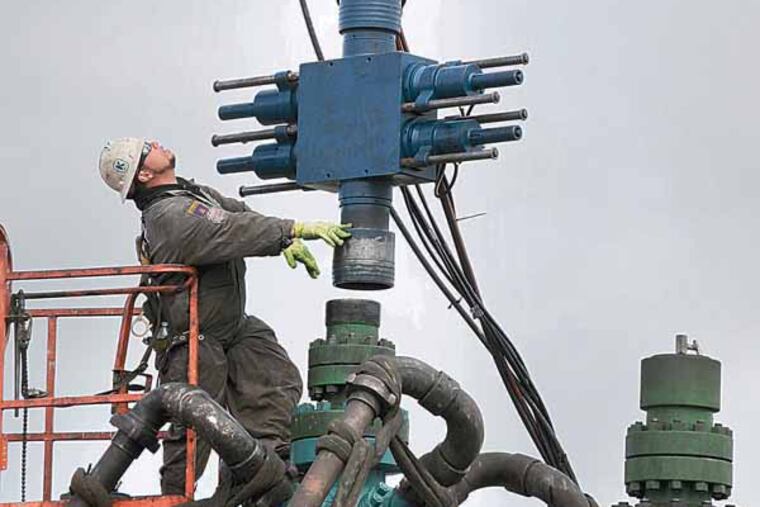$1M in shale money coming to Phila. region
About $1 million in Marcellus Shale money will make its way to the Philadelphia area to subsidize the purchase of natural-gas-fueled school buses and trucks.

About $1 million in Marcellus Shale money will make its way to the Philadelphia area to subsidize the purchase of natural-gas-fueled school buses and trucks.
The Pennsylvania Department of Environmental Protection awarded a total of $6.7 million in grants Thursday to 18 organizations selected from among 49 applicants. The winners include the Rose Tree Media School District in Delaware County and Greater Philadelphia Clean Cities Inc.
The grants, which will support the purchase or conversion of 288 heavy vehicles across the state, are financed from the $206 million collected last year from the Marcellus Shale impact fee. The impact fee law, known as Act 13, includes a provision setting aside $20 million over three years to stimulate the market for natural-gas vehicles (NGV).
The grants pay for half the incremental amount of an NGV above the cost of a conventionally fueled vehicle, capped at $25,000 per vehicle.
The $499,994 award to the Rose Tree Media schools will help reduce the $4.8 million cost for the district to covert 14 existing diesel buses to compressed natural gas (CNG), and to buy eight new CNG buses. The district's cost also includes building a new fueling station and maintenance facilities at its Media transportation center.
The district's 80-bus fleet puts about a million miles on the road each year. The CNG vehicles are expected to save at least $1 million over 20 years in lower fuel costs.
"In addition to the savings," said Superintendent James M. Wigo Sr., "we are committed to contributing to the clean-air efforts in Delaware County and the commonwealth."
The Clean Cities program will use its $492,216 award to convert 35 vehicles belonging to several large companies in the Montgomery County NGV Conversion Initiative, according to the DEP. The companies were not specified, and a spokesman for the Clean Cities organization could not be reached.
DEP will accept applications for an additional $11 million in grants in August, with half slated for local transportation organizations.
More information on the program is at http://bit.ly/18OaNlj.